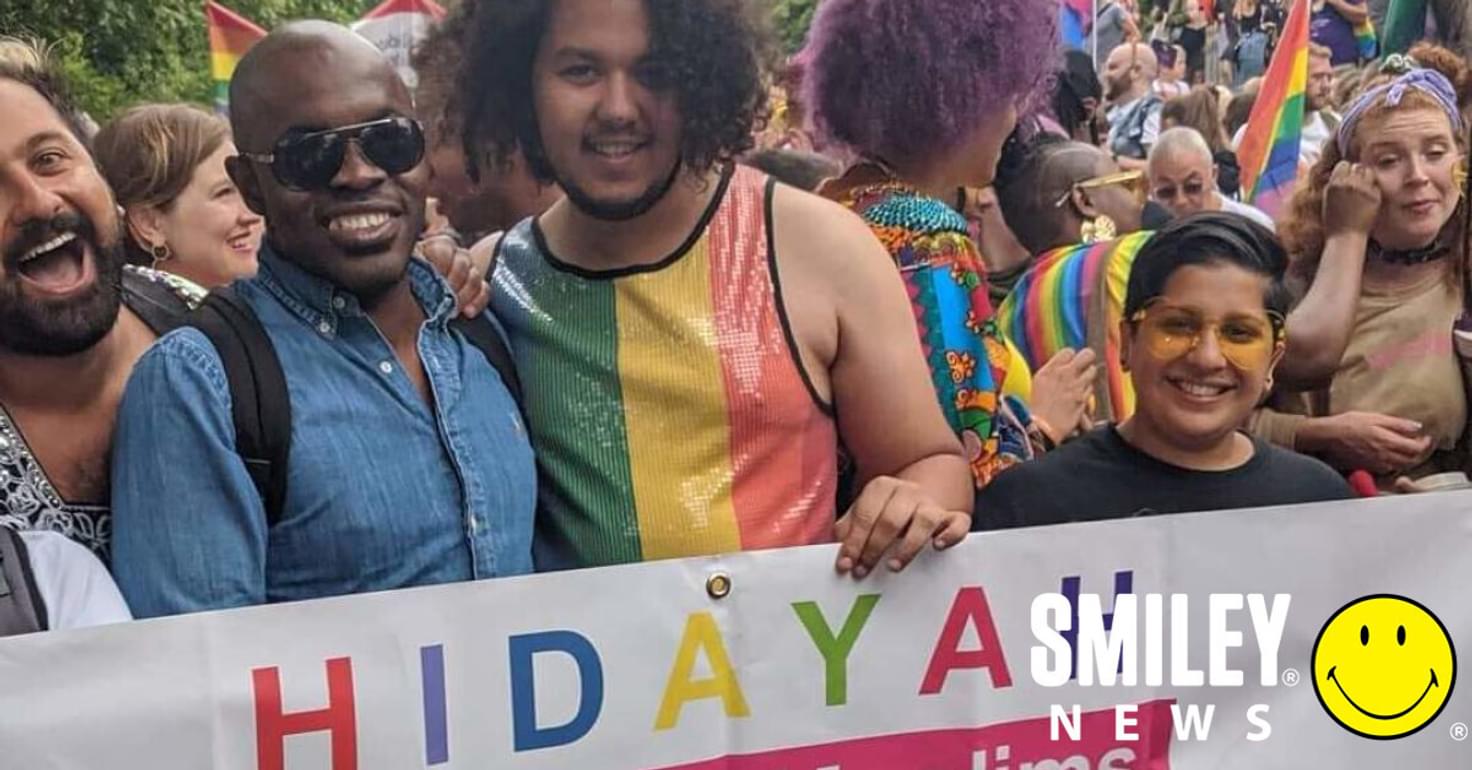
Words by Smiley Team
Rainbows will fill the streets at the end of this month for Manchester Pride, on 28 August. But the bold festivities don’t have the same significance for everybody in the queer community.
While many celebrate love and sexuality as visibly as possible at Pride, LGBT+ Muslims will avoid the main march for their safety this year. Instead, they'll attend an alternative Pride, facilitated by Hidayah (meaning ‘guidance’ in Arabic), an organisation offering advice and mentoring to queer Muslim people.
Hidayah community members will come together during Pride to discuss what it means to be someone of faith and queer, building understanding that helps them develop confidence in who they are. It’s an inclusive place, open to those who may not feel comfortable around others drinking alcohol and it helps reassure them that support is available if they need it.
[Read More: Top 5 queer heroes to mark LGBT+ History Month]
“I describe Hidayah as an adoptive family, who love me unconditionally,” says outreach volunteer Osman Mohammed*. “They are there to guide me during times of difficulty, with relationship issues and personal matters as well as my faith and sexuality - two very important parts of my identity which many of us struggle to reconcile.”
Osman’s personal story reflects the experiences of many in the queer Muslim community. “My own journey started while growing up in a predominantly Black and brown Muslim community," he says. "I never felt it was safe for me to come out for cultural and religious reasons. So for a long time, I internalised my feelings and hid my sexuality, which had a terrible impact on my mental health, trying to live two separate lives.”
Having to hide their true selves makes Hidayah a vital lifeline for many. “The vast majority of Muslims are closeted, and for them it's crucial that there is a safe space and a community out there who can support them,” he adds.
To break through this huge barrier for LGBT+ Muslims, the organisation works in multiple areas of society to challenge perceptions, educate the public and introduce support systems where necessary.
Osman’s outreach work includes spreading awareness at public events and panel discussions which often have rewarding outcomes. At one debate held by the Muslim student society at Solent University, he was delighted when an attendee who was initially skeptical about his work, approached him for a hug and thanked him at the end.
[Read More: Top UK LGBT+ activists]
Hidayah’s volunteers also work with the police to protect victims of honour-based crimes and female genital mutilation. They collaborate with NHS workers to improve service access for LGBT+ Muslims, and they visit schools to educate children about sexuality and gender.
“Our work in schools helps young people understand that, contrary to what you see in the media about oppressive regimes abroad, it is possible to be gay and Muslim and support is available for such people," explains Osman. "This is really important for them to learn because at home they may have been told something different/"
With events going online for lockdown, the organisation has opened opportunities for people around the world, including some from countries where being gay is illegal. Osman hopes this will continue, promising, “Hidayah as an organisation will always be there to welcome anybody who needs us.”
For those seeking advice, Osman urges that they get in touch with Hidayah.
To support Hidayah’s work donate here.
* Names have been changed